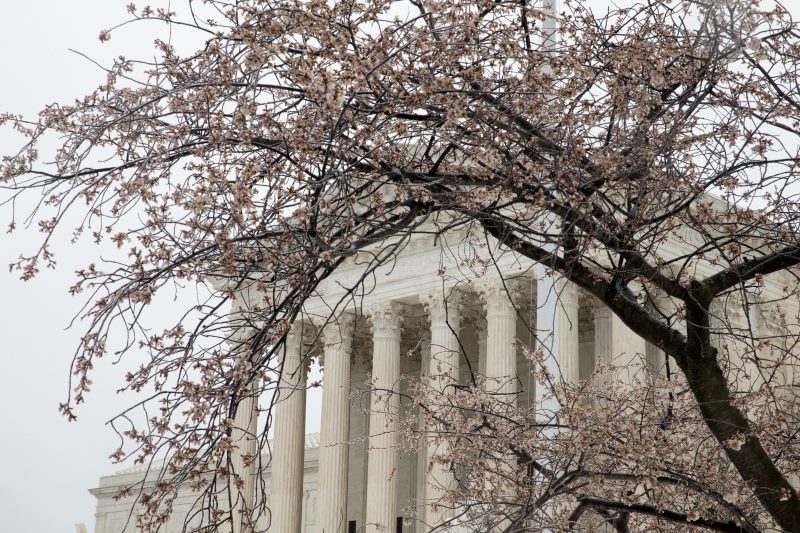Supreme Court dismisses challenge to Virginia gerrymandering ruling
The US Supreme Court has yet to rule whether electoral redistricting, or gerrymandering, on the basis of political affiliation is constitutional (Tasos Katopodis)
Washington (AFP) – A Republican-created electoral map accused of diminishing the impact of black votes in Virginia will not be used in the state’s elections this year, the US Supreme Court announced Monday in a victory for Democrats.
The high court, eager to avoid accusations of political bias, declined to rule on the substance of the case brought by Republican lawmakers in the key US swing state of Virginia, saying the lawmakers did not have appropriate standing to appeal a lower court’s ruling.
The decision essentially upholds the ruling that invalidated a map drawn in 2011 for the Republican-held Virginia House of Delegates because it relied too heavily on racial gerrymandering when it drew 11 of the state’s districts.
Residents mounted a legal challenge to that map, arguing it was drawn to concentrate African-American voters in certain districts in order to diminish their influence in other districts.
The stakes are important in a country where most blacks vote for Democrats, while whites tend to favor Republicans.
A lower court found that voters’ skin color had played a preponderant role in the mapping, a violation of the US Constitution.
The House of Delegates’ majority Republicans appealed. But by a narrow 5-4 decision, a divided Supreme Court dismissed the appeal, meaning the court-ordered maps that are more favorable to Democrats will be used in Virginia’s elections in November.
Justice Ruth Bader Ginsberg wrote in the majority opinion that the House of Delegates could not challenge the court ruling because it did not represent the state.
“Authority and responsibility for representing the state’s interests in civil litigation, Virginia law prescribes, rest exclusively with the state’s attorney general,” she wrote.
Virginia’s governor and attorney general are both Democrats, and they opted not to appeal the case.
Electoral redistricting, or gerrymandering as it is widely known, has long been used by American political parties to gain advantage in elections.
The Supreme Court in 2017 ruled that gerrymandering on ethnic or racial grounds violated the US Constitution, essentially discouraging states from attempting to redraw legislative maps on such grounds to gain a political advantage.
But the court to date has refused to comment on whether gerrymandering on the broader basis of voters’ political affiliation is constitutional.
The justice heard two such cases in recent months and they could issue decisions this month.
Disclaimer: Validity of the above story is for 7 Days from original date of publishing. Source: AFP.


